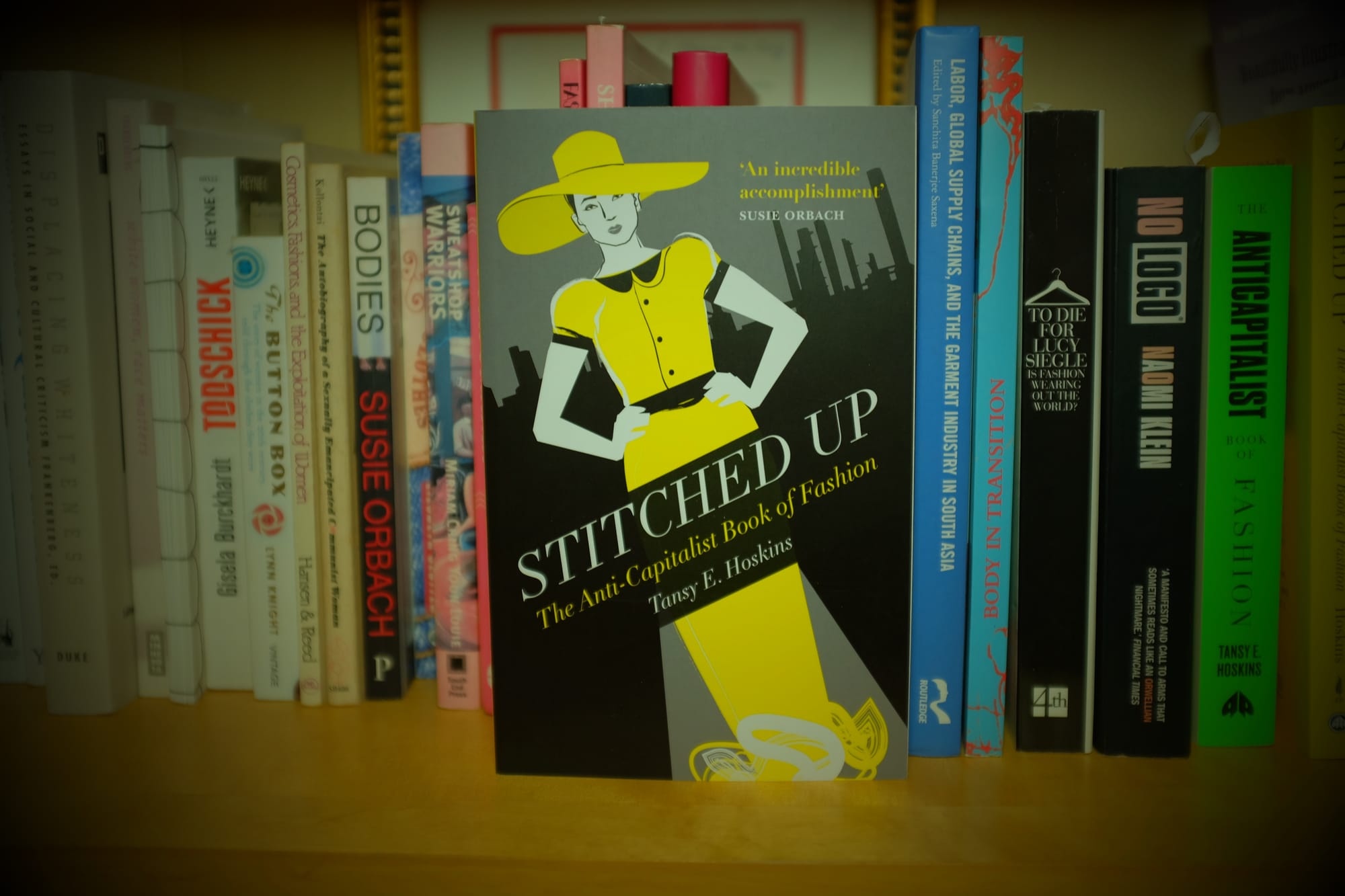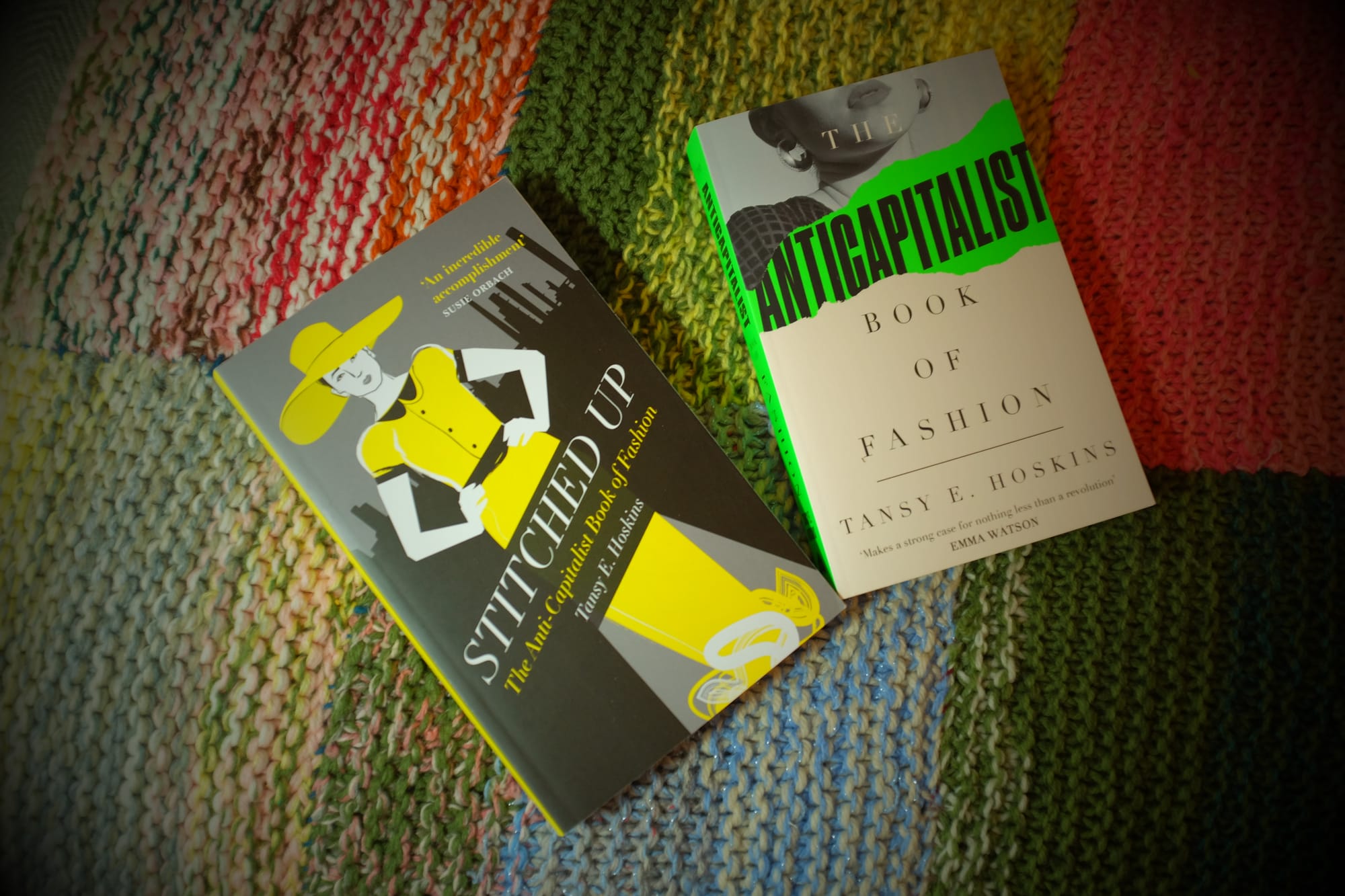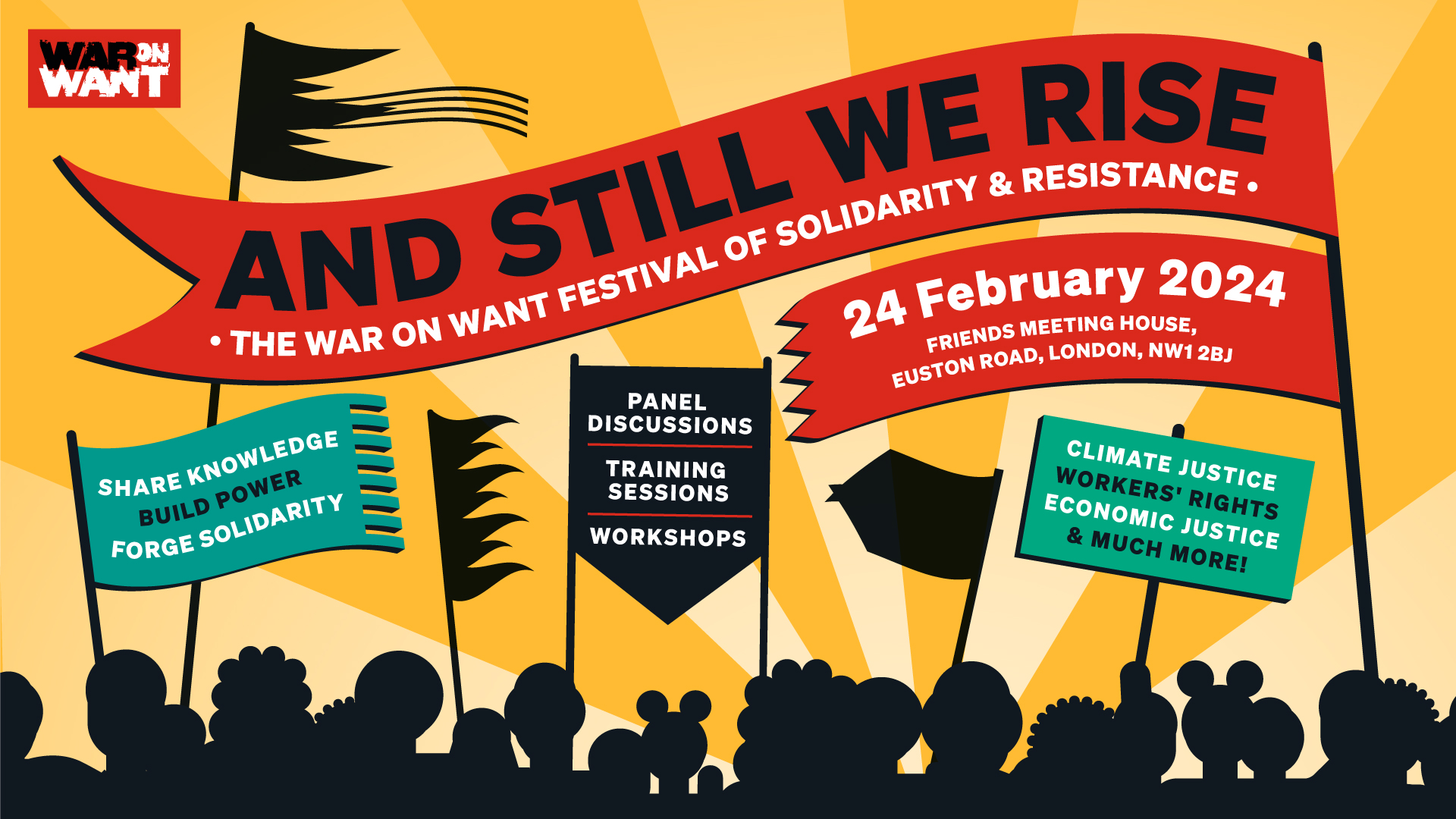Newsletter No. 18 - Still Stitched Up
Ten years on - writing process, advice that doesn't work, plus Anne Hathaway, Myanmar and trainers.

Hello,
Thank you to each of you for being here, plus an extra big welcome to everyone who has signed up since my last newsletter! This one takes a different format from past newsletters because I want to celebrate the fact that this month my first book Stitched Up – The Anti-Capitalist Book Of Fashion turns ten years old.
I had plans for the anniversary but then I got Covid and needed a lot of time to recuperate. So, instead, I decided to turn to the internet to find questions authors get asked on significant anniversaries. I was after questions I’ve not been asked before, but in this category were a lot of irrelevant ones: 'Why is Peeta a baker?' - this was a Hunger Games question directed at Suzanne Collins. 'What was it like gender flipping Edward and Bella?' - a question for Twilight author Stephenie Meyer; and on a breakfast show Kevin Kwan was asked 'What’s been the best thing about all the fame since Crazy Rich Asians was published?'
Eventually, however, I managed to select ten questions, one for each year since 2014:
1) Tell us about [Stitched Up] – what kind of world is it set in?
Stitched Up is set in a world that is being ravaged by big business, the people in the book experience a world where everything around them – trees, animals, housing, seas and even their own bodies and emotions – are being mined and turned into profit. In many parts of this world, war and colonialism mean traditional ways of life have been destroyed and all that’s left are these huge dystopian factories where people get paid very little to produce commodities. No one has enough money to eat properly and the factories are so unsafe they keep collapsing and killing people.
On the other side of the world these commodities are sold for vast sums. This side is supposed to be the ‘winning side’ but while a few people have jets and palaces, most are also poor, lonely, unhealthy and depressed. Their streets are covered in signs telling them that commodities are a magical way to heal their pain, but actually the commodities have been designed to fade away so the healing never takes place.
Luckily there’s a growing resistance made up of people from both sides of the world who understand that capitalism is what links all these injustices together and decide to fight for a better world.
2) What is your writing philosophy?
My motivation for writing is simply that I want the world to change. I don’t think art or writing alone changes the world but I think it can play a part in building the kinds of social forces that history shows do bring about seismic change. Towards this end, writing is just one thing that I do.
I also want to use my energy to amplify both people and events that get ignored by the fashion industry and wider society – primarily, but not exclusively, for me that means garment workers, trade unions and worker rights organisations. The flip side of this is not promoting brands or creating environments where corporations feel comfortable. The corporates have taken over the world, the point is to take it back.
3) What is one change you want to see in the literary sphere?
I want to change the fact that making a living from art under capitalism is so incredibly hard. The difficulty of making a living through art – a field that includes writing – increases with the number of social hurdles people face, and across the board capitalism excels at making people feel like failures.
I want people to know that the fact that it is horribly hard, if not impossible, to be properly remunerated and respected for art is capitalism’s failure and not theirs. I believe we could quite easily live in a world where creativity, writing, poetry, theatre, sculpture, painting, drawing, music and so on are not assessed by the narrow confines of profit and commercialism but instead are a social good accessible and open to all as a part of daily life. That anyone who wants to write could do it and know that they are financially and socially supported forever. That is what I want to change.
4) Do you think you remember all the little details in [Stitched Up]? If you were to do a trivia challenge against diehard fans, do you think you could win against them?
My love of quizzes made me want to include this question. Despite rewriting Stitched Up to turn it into The Anti-Capitalist Book Of Fashion in 2022, I would try really hard but I don’t think I would necessarily win a quiz. Not because of "diehard fans" but because there are something like 1,000 footnotes – it’s a detailed book.

5) What is your go-to snack/drink while you’re writing?
This is actually embarrassingly important because I can’t concentrate, let alone write, when I’m hungry. Nuts, oat biscuits, bananas, peanut butter – savoury and vegan. Plus lots of water and peppermint tea.
6) Now that you have written more books, parts of the writing process must have gotten easier. But is there anything that was actually easier when you wrote [Stitched Up]?
The thing that was easier is something that I did not know existed until it had gone. In writing Stitched Up I experienced the wonderful joy of having zero expectations about my writing. I’d sit in the library and just write. I got to feel totally immersed in the subject and to not care about the outside world. I was excited for my mentor Neil to read it but beyond that I honestly expected that maybe just a few handfuls of people would read my book. I have never recaptured that feeling as now I feel the presence of an audience when I write.
7) Complete this sentence: My favourite line in [Stitched Up] is ____ because ____.
‘The fish do not talk about the water’
This is a traditional saying I quoted from James C. Scott’s Weapons of the Weak to describe the way capitalism is protected because it is often too close to the eyeball to be seen. People go about their life thinking, more often than not, that life is shit or hard rather than that life under capitalism is shit and hard.
8) Do you have any tips or advice for aspiring writers?
Writers write. You have to do the thing to be a writer. I started by blogging about what was once a very niche subject – fashion and capitalism. Find your niche and write.
I also really rate this piece by writer Toby Litt on 'sustaining oneself as a writer'. When I first read it, it took me on an unexpected journey from spine health to the climate emergency and I highly recommend it.
9) Name one commonly accepted piece of writing advice that doesn’t work for you
I keep hearing stuff along the lines of ‘to be a writer you have to have a big social media/Instagram following’. I think this needs a lot of unpicking because for many people it will be deeply unfulfilling advice.
Obviously online/offline fame can open doors for the lucky few and good for them. But I would never encourage anyone to focus on chasing social media above learning how to develop subjects into stories and do interviews, how to research and write beautifully, or how to develop an attention span that means you can craft 80k words into a book that will make an impact on the world.
Accounts and sites can be shut down in an instant by the billionaires that own them, the point is to make something substantive that lasts the test of time, that tackles the crises we’re in and which gets to the heart of what it means to exist in this moment.
On that note, this mini-essay by Joan Westenberg has only just been published but it’s really good on the tyranny of pushing creatives to be entrepreneurs and how this ‘radically narrows down the complex motivations of human creativity and pressures creators to view financial success as the highest marker of their worth.’
10) Are you writing? Do you have anything new coming out?
I am deep into the research for a possible new book which I am very excited about. In the meantime I’m doing more work with War On Want on the topic of fashion and Degrowth as a follow up to our Fashioning The Future report.
Thank you to all the interviewers on the internet who came up with these questions, and thank you to all of you for reading. If you'd like a copy of The Anti-Capitalist Book Of Fashion, you can head over to Pluto Press - also very much worth it because they currently have a 40% off sale covering lots of brilliant books for Black History Month.

Notes From The Profit Margins
These are some of the things I am keeping my eye on in the industry right now.
- This is not directly fashion industry related, but if you're in the UK please spend a minute asking your MP to lobby for funding to be restored to the United Nations Relief and Works Agency so they can provide crucial aid to people in Gaza. Israel's horrific assault on Gaza has now killed over 26,000 Palestinians, at least 70% of them women and children. https://palestinecampaign.eaction.online/fundUNRWA
- The 1st February marks three years since the military coup in Myanmar. Three years of resistance by Burmese trade unions and the Burmese people. This new data shows the scale of abuse against garment workers since the Generals took over the country.
- 'Now Is The Wintour Of Our Discontent' - the historic one-day strike by staff at Condé Nast in protest against job cuts.
- The celebrity news that got more coverage than the strike itself - 'Anne Hathaway Walks Out of Vanity Fair Photo Shoot in Solidarity With Condé Nast Union Work Stoppage'
- This GQ piece on 'The fraught, frenzied, maybe impossible race to build a sustainable sneaker' - which I was happy to be interviewed for.
- On the same subject - check out this investigation: 'Adidas says it doesn’t use leather from Chinese cows. That’s not true' [CW - animal cruelty]
- This piece on the terrible 'progress' of brands to tackle forced labour in clothing supply chains.
- This letter from workers at the Özak Textile factory in Turkey to Levis after 400 workers were fired for striking for better working conditions and freedom of association.
- And finally, this tragicomic video from Elle Cordova on the 'eco-language' used by brands to try to make us feel comfortable buying their products while the world burns.
Thank you so much for reading! Please forward this newsletter to anyone you think would like it.
In solidarity for the month ahead, Tansy.
p.s. Looking forward to the And Still We Rise festival on the 24th February. Some pretty stellar speakers - Greta Thunberg, Nnimmo Bassey, Naomi Klein... and I'll be there with comrades from Sri Lanka and Pakistan to dissect the fashion industry.

p.p.s In case you're still wondering about the questions at the start of this newsletter I don't want to leave you in suspense. Peeta was a baker both to symbolise his life-giving character and to reference the idea of 'bread and circuses' that runs through the Hunger Games books. Gender-flipping her characters allowed Stephenie Meyer to reconnect with her books after they had gotten away from her having become so popular. And lastly Kevin Kwan does not seem to enjoy 99% of fame and says he would have written books under a different name had he known how huge they would become.
